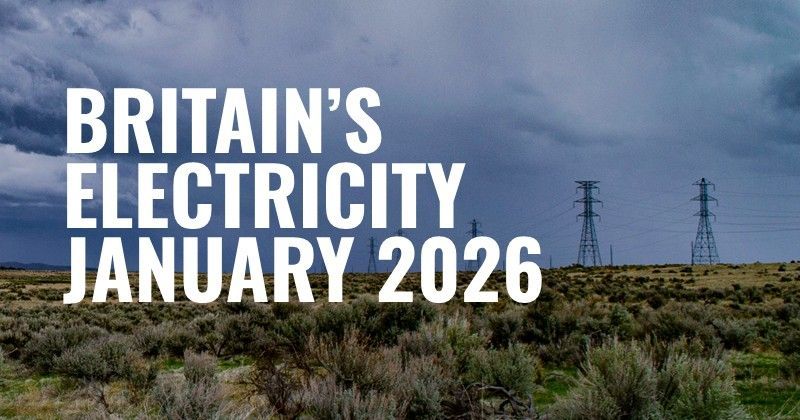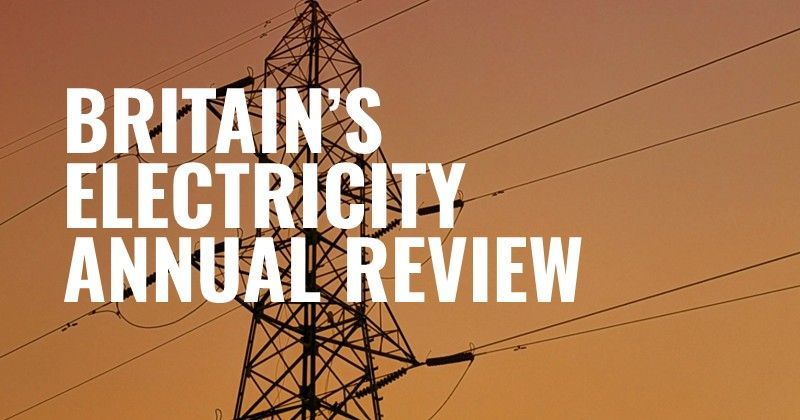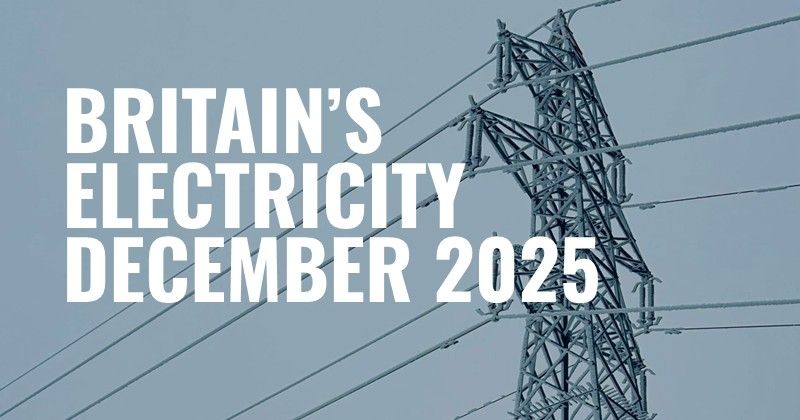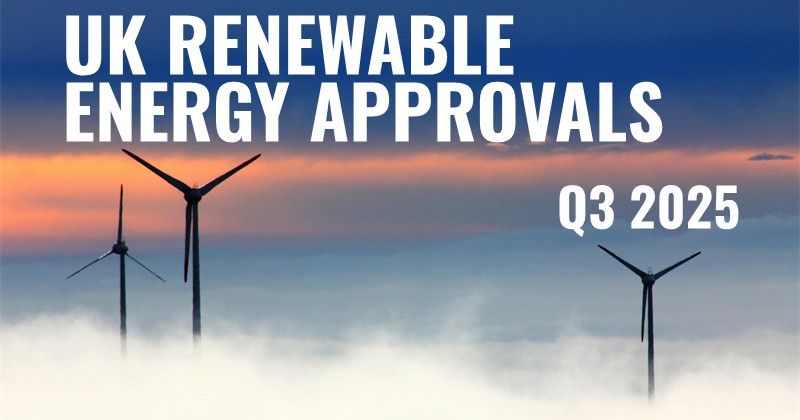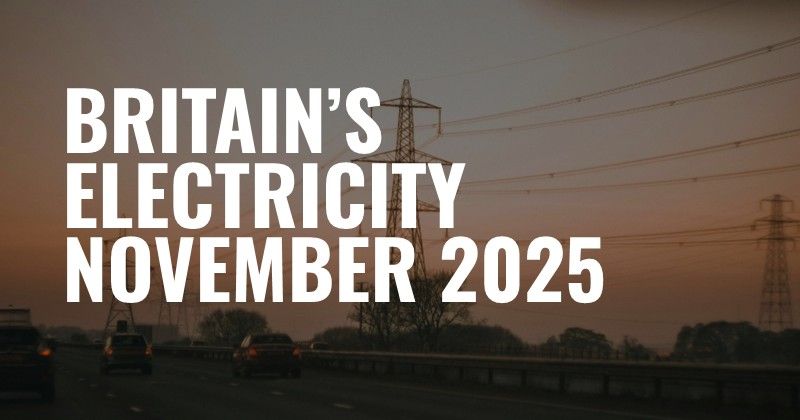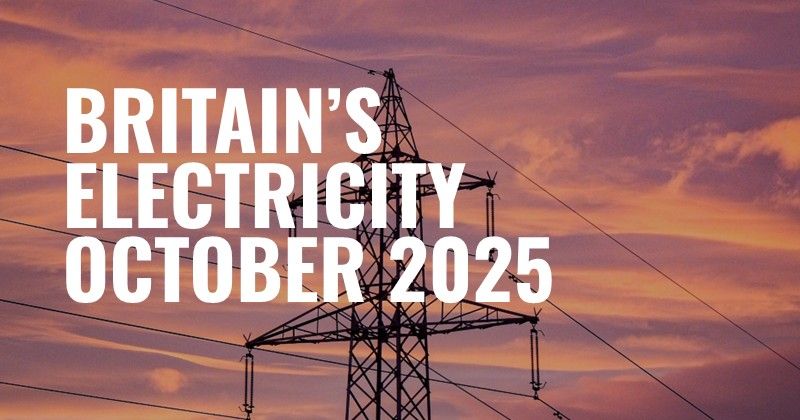by Doug Mccauley
•
6 November 2025
Why the Natural World Belongs in Every Sustainability Strategy Nature means something different to everyone. For some, it is a dog-walk through the park; for others, it is hiking misty mountains in Scotland, swimming in turquoise waters, or exploring tropical forests in Costa Rica. Whatever image comes to mind, the truth remains the same: we all depend on nature for a sense of clarity, consistency, and stability. Nature provides us with clean air, fresh water, food, and moments of calm in an increasingly busy world. Its positive impact on our mental health is well documented; yet, while most of us recognise its value, we often struggle to understand how to support it, or how to bring more of it into our daily lives. Rediscovering Nature During the Pandemic Despite, and perhaps because of, their emphasis on isolation, the COVID-19 lockdowns reminded many of us just how vital being outside and being around nature are. That single hour of permitted outdoor exercise became a lifeline, a way to unwind, reset, and reconnect with others and ourselves. A 2023 report by Jonathan Kingsley et al. found that gardening played a key role in moderating stress and improving mood during the pandemic. Those with access to a garden reported significantly higher life satisfaction and mental wellbeing than those without. This experience underlined a powerful truth: access to nature should not be a luxury, it is essential for human health and happiness. The State of Nature in the UK When we think of nature in the UK, we might picture rolling countryside, rivers, and ancient forests. But beneath that green surface lies a concerning reality: the UK is one of the most nature-depleted countries on Earth (according to the UN). Ancient woodland, i.e. forests that have existed since pre-1600AD in England and Wales (1750AD in Scotland), now make up just 2.5% of the UK’s land area. These woodlands host incredibly diverse ecosystems in which plants, animals, and microorganisms coexist in balance. When disrupted, through deforestation, culling, or chemical use, these systems become fragile and fragmented. Monoculture such as dense pine plantations, for example, may appear lush but support only a fraction of the biodiversity found in ancient woodland, leaving them vulnerable to disease and collapse. The UK once hosted brown bears, wolves, lynx, moose, and beavers. While some, like the beaver, are being cautiously reintroduced, broader rewilding debates continue. What united both sides, however, is a shared recognition of the urgent need to protect and restore nature in the UK. One major policy proposal aiming to do just that is the Climate and Nature Bill (CAN Bill), a landmark piece of UK legislation designed to tackle both the climate crisis and the nature crisis together. The Bill calls on the Government to: The Bill calls on the government to: Set legally binding targets to reduce the UK’s greenhouse gas emissions in line with the latest science (limit warming to 1.5°C). Restore nature , halting and reversing UK biodiversity loss by 2030, by setting and implementing a legally-binding roadmap. Involving the public , through a Climate and Nature Assembly that ensures public participation in shaping solutions. The proposed CAN Bill is gaining widespread support from the public and over 1,500 organisations, seeking to tackle this crisis head-on, aligning efforts to address both the climate and biodiversity emergencies. A Global Challenge The challenge extends far beyond the UK. The UN warns that over one million species worldwide are now at risk of extinction due to human activity. This loss doesn’t just affect wildlife and being able to show future generations elephants and rhinos, it threatens the very systems that sustain us: our food, water, and health. Over the past 150 years, land use has changed dramatically. With the global population more than quadrupling, human activity now dominates 75% of the planet’s usable land. The regenerative capacity of Earth’s ecosystems is in rapid decline. If we are to secure our future, regenerating the natural world is no longer optional; it is essential. Why Nature Belongs in Corporate Sustainability Despite its fundamental role, nature remains one of the most overlooked elements in corporate sustainability strategies, with the focus of many of these relating to another important aspect: greenhouse gas emissions. While this is a great start, and a fundamental issue, it must be combined with a nature strategy to ensure both the climate and biodiversity crises are tackled together. While frameworks like the Taskforce on Nature-related Financial Disclosures (TNFD) and the Science Based Targets Network (SBTN), nature-based target pilot schemes, have begun to offer guidance, many organisations still lack direction. As a result, we’re seeing a growing voluntary market for corporate nature investment, from tree planting and habitat restoration to animal welfare initiatives. Yet these efforts remain fragmented and underpowered relative to the scale of the challenge. The UK Government’s Nature Recovery Network (NRN) aims to change this by moving from protection to restoration. Its goals include but are not limited to: Protecting and managing 30% of England’s land and sea for nature by 2030 Halting species decline by 2030 and increasing species abundance by at least 10%, to exceed 2022 levels by 2042 Restoring or creating 500,000 hectares of wildlife-rich habitat outside protected sites by 2042 Improving 75% of protected sites to favourable condition by 2042 Increasing tree canopy cover to 16.5% by 2050 Improving access to nature, working across government to ensure that everyone lives within 15 minutes’ walk of a green or blue space These efforts are directly linked to achieving net zero by 2050, improving air quality, and supporting public wellbeing, outcomes that businesses can and should help accelerate. The Business Case for Nature Investing in nature isn’t just good ethics; it’s good business. Productivity and wellbeing: Studies show that employees with access to green spaces are happier, healthier, and more productive. Even having indoor plants or a green view can reduce stress, improve focus, and lower absenteeism. Customer and employee loyalty: Millennials and Gen Z, now the largest segments of the workforce and consumer base, increasingly expect companies to demonstrate environmental responsibility. Businesses wanting to attract and retain talent must act. Innovation and risk management: Nature-positive strategies often drive innovation, improve resilience, and ensure long-term regulatory compliance. Brand reputation and access to capital: Investors and consumers alike are rewarding businesses that take meaningful action on biodiversity. In short, what’s good for nature is good for business, and essential for long-term resilience. From Biodiversity Net Gain to Business Transformation Certain sectors are already leading the way. In construction, the concept of Biodiversity Net Gain (BNG) ensures that new developments deliver measurable improvements in biodiversity compared to pre-development levels. Through features such as green roofs, community gardens, wildlife corridors, and sustainable drainage systems, developers are proving that commercial success and ecological restoration can go hand in hand. A great example is Coutts Bank in Central London, which has transformed its rooftop into a thriving urban garden. The space now produces an impressive variety of fruits and vegetables, including wasabi, Sichuan peppers, iceberg lettuce, guavas, berries, and even honey from on-site beehives. This initiative highlights how even the most densely built urban environments can integrate green infrastructure, enhancing biodiversity, improving air quality, and contributing to local food resilience and community wellbeing. The question now is: how do we extend this mindset across all industries? By embedding nature into corporate strategies, from supply chains to employee wellbeing, businesses can help regenerate ecosystems while building stronger, more sustainable organisations. A Call to Action Nature is not an externality or something that can remain as a nice-to-have; it is the foundation of our economy, our health, and our future. By embracing nature as a core component of sustainability strategy, UK businesses can play a pivotal role in restoring biodiversity, supporting the Nature Recovery Network, and building a more resilient future for all. Reflecting on World Mental Health Day last month, there’s no better time than now to take action, to integrate nature not only within our businesses but also into our daily lives. With autumn upon us, why not set aside a moment this week to step outside and truly reconnect with the natural world? Notice the vibrant colours of the turning leaves, listen to the gentle rustle as they fall, feel the cool breeze on your skin, and breathe in the rich, earthy scent of the damp ground. Be present in that moment, and you’ll soon feel the restorative power that nature so freely offers. If you’d like to help drive systemic change, write to your local MP to support the Climate and Nature Bill, and learn more at www.zerohour.uk. Parliament is next scheduled to discuss the CAN Bill on Friday 29th May 2026. It's Time for Businesses to Lead When developing or reviewing your ESG or sustainability strategy, supporting nature restoration and stewardship must be part of the plan. Nature underpins environmental performance, enhances social value through community engagement, and improves staff health and wellbeing, all of which are core pillars of a credible and future-proof ESG strategy. At edenseven, we support organisations in integrating nature into their strategy in meaningful, measurable ways, from nature-positive initiatives and biodiversity planning to partnering with local community groups and improving employee wellbeing through access to green spaces. Want to learn how to integrate nature into your business, be part of the change, and reap the benefits discussed above? Get in touch with edenseven today, and let’s build a future where business and nature thrive together. Contact edenseven: phone: +44 1223 750335 email: info@edenseven.co.uk


